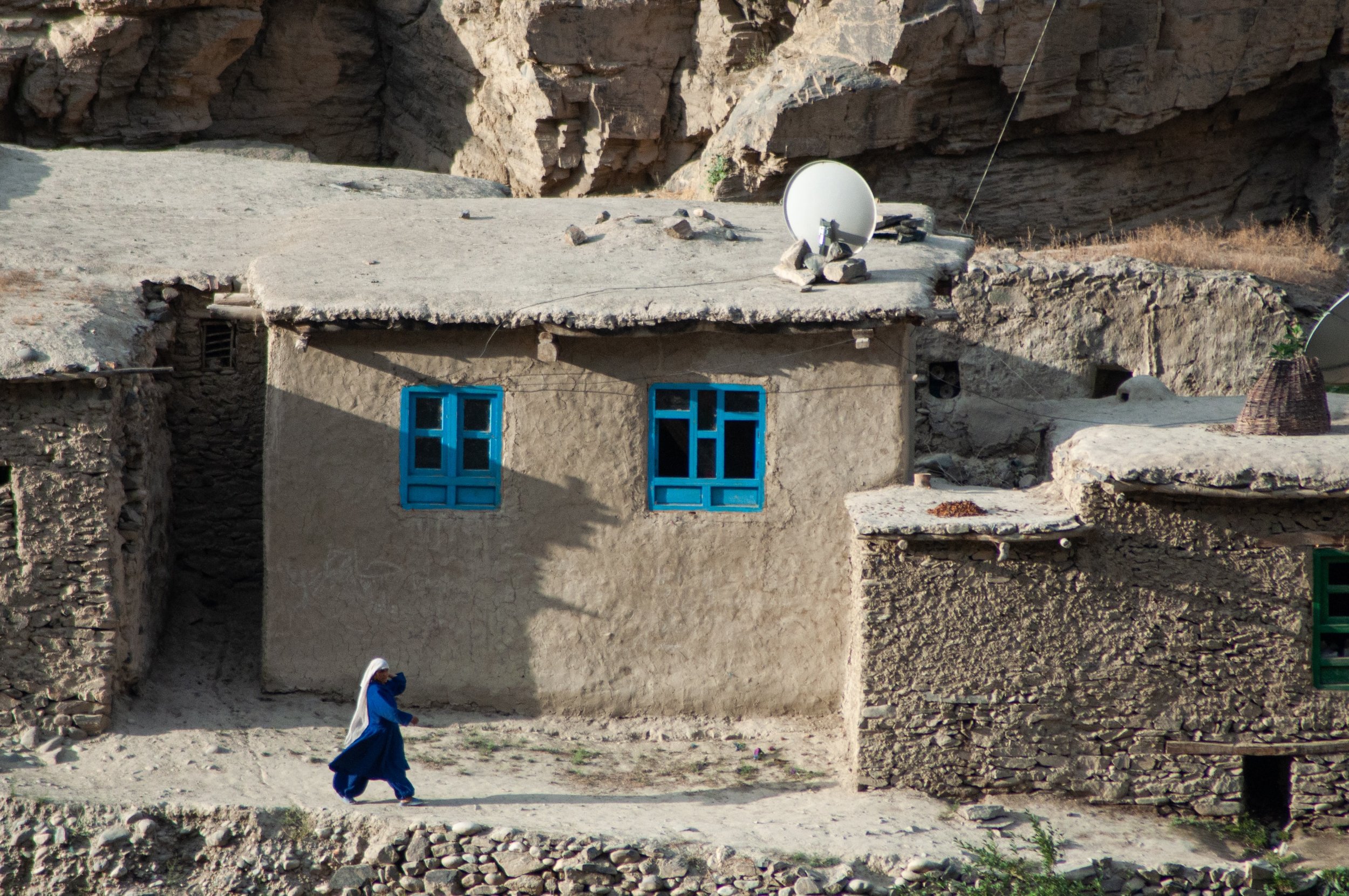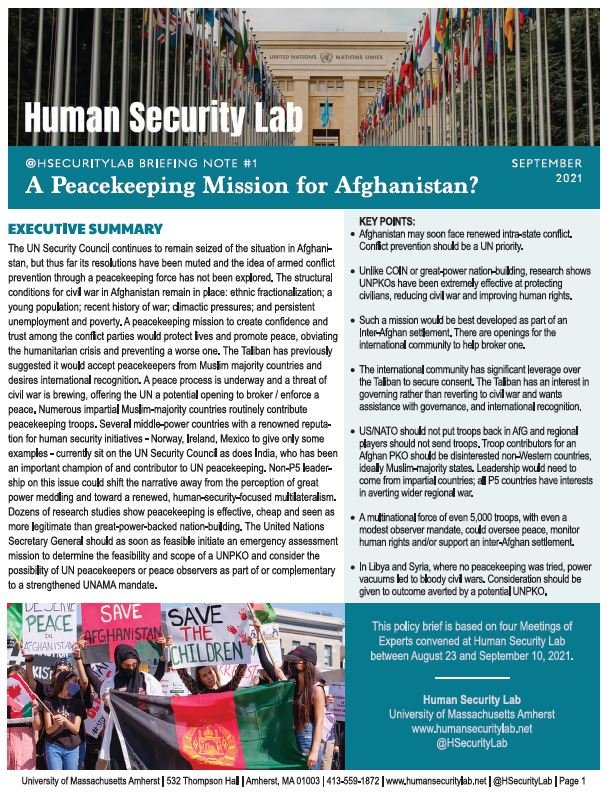
Afghan Voices Project
After the US withdrawal from Afghanistan in August 2021, Human Security Lab convened four sessions of a Rapid Working Group of over 25 conflict scholars from around the world, and conducted stakeholder engagement conversations with Afghan intellectuals, conflict NGOs, think-tanks and policymakers, to examine the possibility of standing up a peacekeeping mission in Afghanistan in the wake of the US withdrawal. This project, supported by a grant from the UMass College of Social and Behavioral Sciences, resulted in a published briefing note, A Peacekeeping Mission for Afghanistan?, a public-facing webinar and a series of ongoing conversations.
Human Security Lab subsequently won a contract from the US Agency for International Development to provide recommendations for gender programming in Taliban-controlled Afghanistan. In May 2022, the Lab produced a second briefing note, Rethinking the US’ Women, Peace and Security Agenda in Afghanistan.
With additional support from the National Science Foundation, the Lab continues to study the peace and security situation in Afghanistan under the Taliban, especially as pertains to women and gender. 20,000 survey answers were collected in Afghanistan between March and June 2022 in collaboration with global research firm RIWI, and are being analyzed by Professors Bernhard Leidner and Charli Carpenter in collaboration with a team of graduate and undergraduate students to develop an interactive website showcasing what Afghans say about the future of their country.

Peacekeeping
In October 2021, Human Security Lab published its first briefing note, outlining the potential for a peacekeeping mission in Afghanistan to support a durable peace in that country. The report was based on four consultations with a working group of academic experts from the US, UK, Norway, Sweden, New Zealand, China, and Australia. It included consultations with experts from the International Crisis Group, Human Rights Watch, Refugees International, Center for Civilians in Conflict, International Peace Institute, UN Foundation, Better World Campaign, Peacekeeping Effectiveness Program, Effectiveness of Peacekeeping Network, Stimson Center, Heritage Foundation and Center for International and Strategic Studies, United Services of India and PAX Christi International. A number of students assisted with the report, including Jaeye Baek, Helen Eshetu, Catherine Fowler, lsha Mahajan, Jenna Norosky, and lmtashal Tariq. The briefing note was distributed to all those who participated in the consultations as well as to stakeholders in the UN community, US State Department and US Agency for International Development and was paired with a live webinar drawing on insights from the many experts who participated in the project.

Gender and Security
With support from the US Agency for International Development, Human Security Lab drew together a second group of experts, as well as international practitioners and Afghan civil-society practitioners, to discuss the future of gender programming in Taliban-controlled Afghanistan. The report was based on four consultations with a working group of academic experts from the US, Canada, Qatar, Afghanistan, New Zealand, London and Australia. It included consultations with experts from the Human Rights Watch, Refugees International, Center for Civilians in Conflict, International Rescue Committee, Women’s International League for Peace and Freedom, Norwegian Refugee Council, Girls Not Brides, International Civil Society Action Network, UN High Commissioner for Human Rights, Christian Aid Afghanistan, and Afghan civil society organizations including the Afghan Women’s Network, Women and Peace Study Organization, HerAfghanistan, Najiba Foundation, Feminine Perspectives Campaign, LEARN Afghanistan, Afghan Women Social Protection Organization and the Uprising for Change in Kabul. A number of students assisted with the report, including Jaeye Baek, Catherine Fowler, lsha Mahajan, Jenna Norosky, Nara Sritharan, Jessica Mosheshvili, Prestin LeBlanc, Imtashal Tariq and Caroline Williams. The briefing note was distributed to all those who participated in the consultations as well as to stakeholders in the UN community, US State Department and US Agency for International Development.

